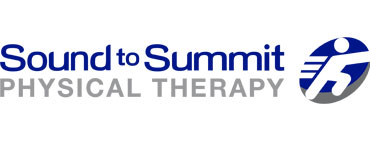Rehabilitation for Multiple Sclerosis
There are many neurological disorders that affect millions of American. The nervous system is a complex system that controls all of the workings of
Multiple Sclerosis (MS) is an immune-mediated disease in which the body’s immune system attacks the central nervous system by way of demyelination, the process in which the insulation that covers of nerve cells in the brain and spinal cord are damaged. The damaged myelin, or insulation, forms scar tissue, which interrupts nerve impulses traveling to and from the brain and spinal cord. Demyelination can lead to a variety of symptoms including, but not limited to fatigue, weakness, spasticity or muscle stiffness and tightness, numbness/tingling and gait (walking) difficulty. The disease is characterized by relapses and remissions.
Benefits of Rehab for Multiple Sclerosis
Physical therapy can play a vital role in managing the symptoms of MS, especially following a relapse. Initially, it is important for patients to establish a baseline level of function including strength, fall risk and walking speed. Our skilled physical therapists will conduct an examination, during which they will assess a variety of components, including strength, flexibility, balance impairments and gait pattern and walking speed.
Whether the symptoms are mild or severe, all patients with MS can benefit from physical therapy.
Types of treatment may include:
- Development of a home exercise program for management of symptoms
- Patient education regarding energy conservation
- Gait training/balance training to reduce fall risk
- Upper and lower extremity strengthening
- Cardiovascular endurance training
- Aquatic therapy (if indicated)
- Assessment for orthotics (devices used to improve foot clearance)
- Assessment for assistive devices (canes, walkers, wheelchairs)
It is important for a person with MS to develop a good exercise program from the time of initial diagnosis. Call today to find out more about the benefits therapy can provide.
What to Expect
Every patient has a unique health history, diagnosis and personal goals. When you come for your first appointment, we will create a personalized treatment plan for you.
We work with most major insurance providers and do our best to help keep the paperwork pain-free. If you’d like to confirm your insurance coverage, please let us know and we can verify when you schedule. If your insurance provider requires a co-pay, we will ask for this payment at each visit. We accept payments by cash, check or credit card.
When to Arrive
On average, a patient’s first visit lasts about an hour. We typically ask patients to arrive 15 minutes early to sign-in, complete paperwork and/or change clothes.
What to Bring
On your first visit, you’ll need to bring your physician referral or prescription (if needed), your insurance card, your primary registration forms, your ID or driver’s license and your co-payment (as applicable). If desired, you may bring a change of clothing.
How it Works
During your first visit, your physical therapist will do an initial evaluation and discuss your plan of care. The therapist uses this information to set goals for your continued treatment. Physical therapy goals may include improved movement, strength, endurance and flexibility, as well as decreased pain. Your subsequent visits will focus on treatment that is based on your diagnosis and individualized goals.
